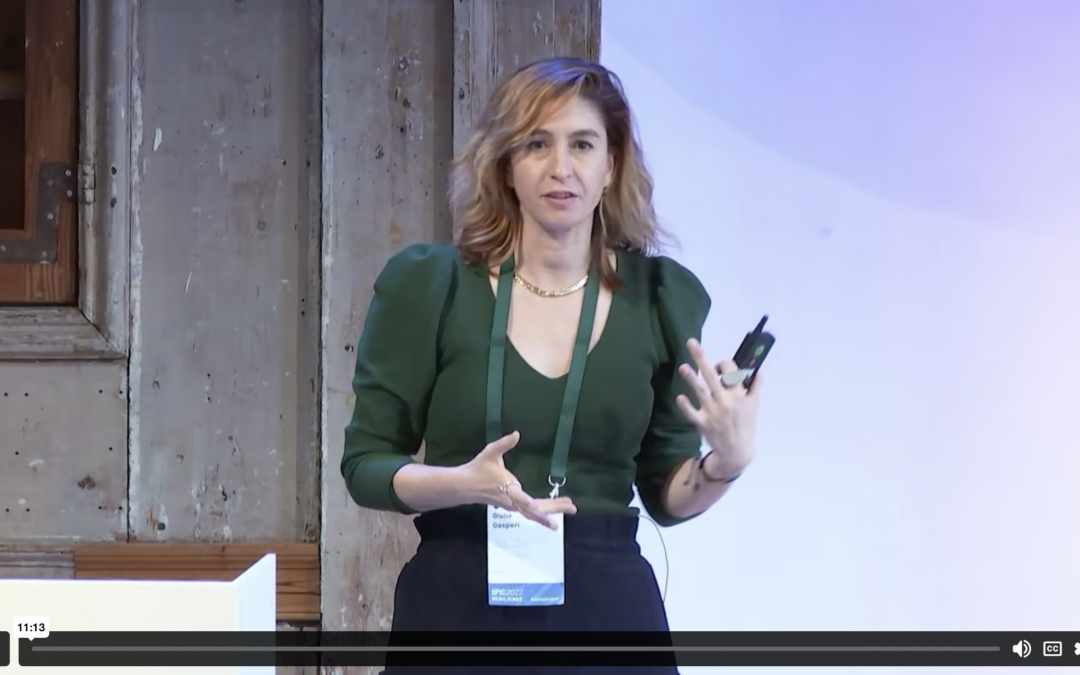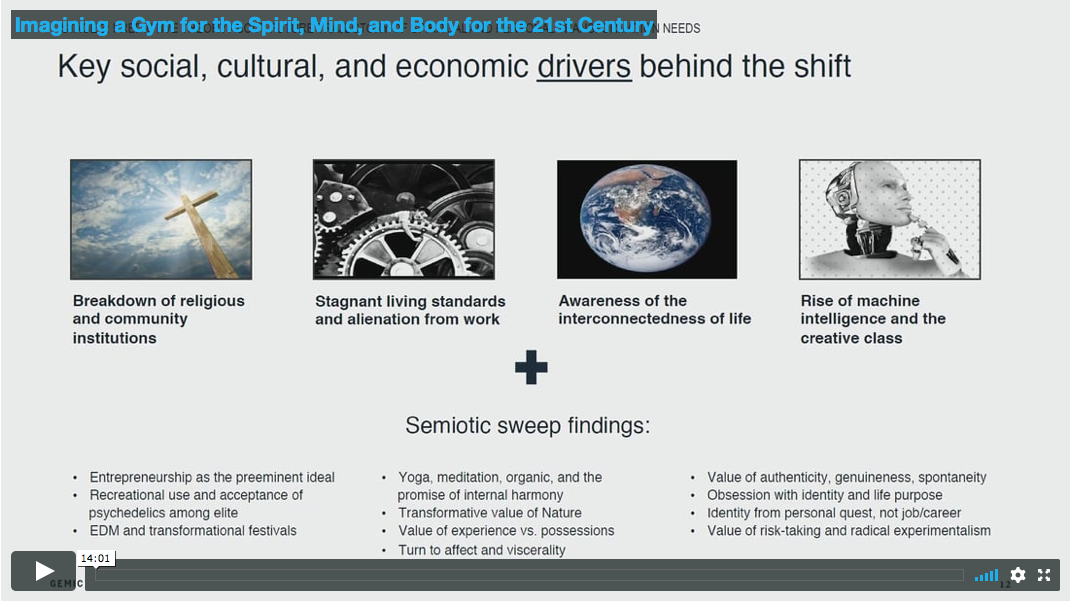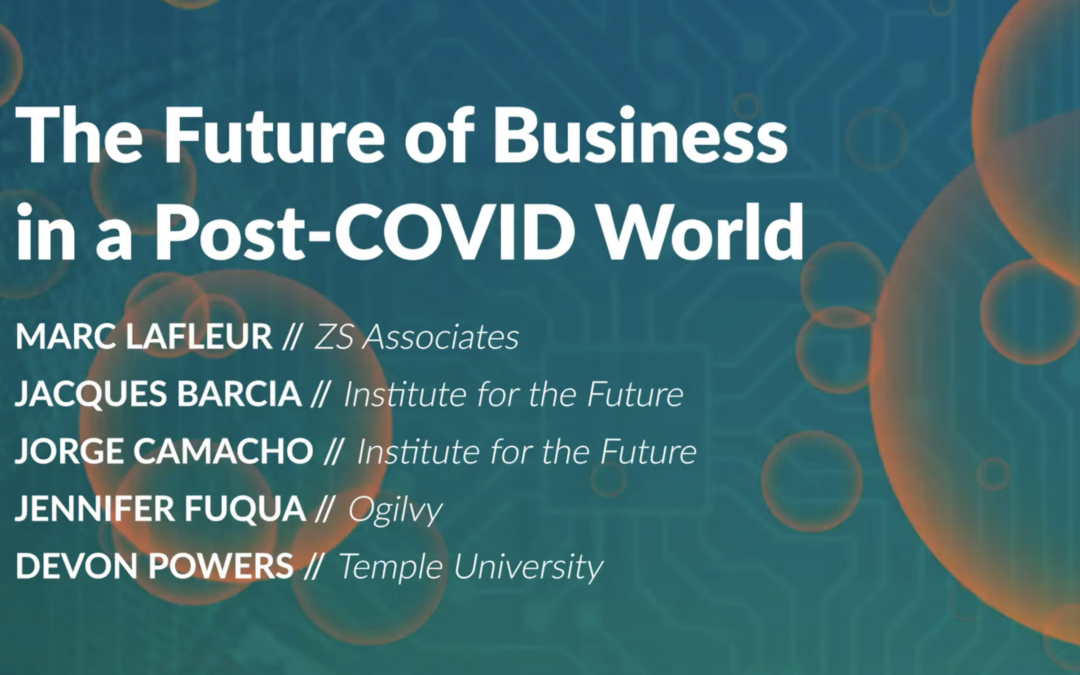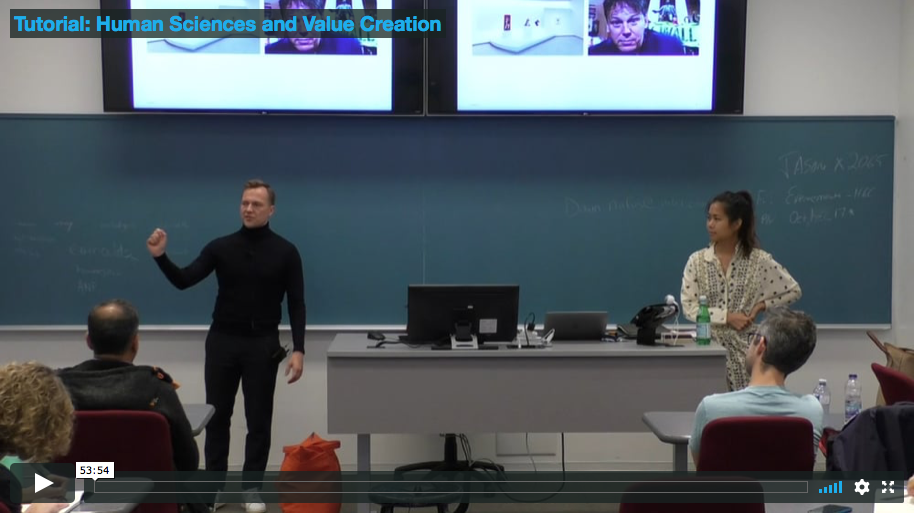Apparel & footwear (A&F) give us social identity, protection and a means of self-expression. But in a pandemic these ways of thinking about clothing are essentially pointless. When the world shuts down...


Apparel & footwear (A&F) give us social identity, protection and a means of self-expression. But in a pandemic these ways of thinking about clothing are essentially pointless. When the world shuts down...

Since the 90’s, one of ethnography’s values has been about the reduction in the risk of developing new products and services by providing contextual information about people’s lives. This model is breaking down. Ethnography can continue to provide value in the new environment by enabling the...

Case Study—This case explores a research and consulting engagement whose goal was to build an investment case for a new type of 21st century gym for the spirit, mind, and body. The client, a group of well-funded U.S. entrepreneurs, wanted to design and launch a venture that would be positioned to...

Events of the 18 months have upended questions of the future and, for business, cast a new light on how it might better contemplate and plan for uncertainties. COVID has also opened up a new sense of potential when it comes to re-inventing or designing better or new futures for ourselves,...

Book Review Ethnographic Thinking: From Method to Mindset Jay Hasbrouck 2018, 120 pp, Routledge I’ve been reading Jay Hasbrouck’s Ethnographic Thinking this spring, sneaking its pages into gaps in my daily routines. It’s part of my longer-term project of reading across the fields of service...

Overview Where do I find new sources of value in a heavily competed industry? How can I build more compelling value propositions with transformative potential? Integration of the human sciences into corporate...

"What a useful thing a pocket-map is!" I remarked. "That's another thing we've learned from your Nation," said Mein Herr, "map-making. But we've carried it much further than you. What do you consider the largest map that would be useful?" "About six inches to the mile." "Only six inches!"...